If you have any of these symptoms, you may have candida:-
- A white coating on the tongue is typical.
- You are sensitive to many foods
- You carry stubborn weight, no matter what you do
- You experience brain fog
- You have ongoing tummy bloating
- You are struggling with autoimmunity
- Your hormones are still wonky in spite of doing many good things
- You crave something sweetor anything with carbs
- You have itchy ears, rectum or vagina
- You struggle with intestinal distress such as constipation, bloating, or gas
- You have mental/emotional aspects including depression and anxiety
- You have debilitating fatigue or exhaustion
- You have chronic sinus infections
- Recurring vaginal yeast infections
- Hypothyroidism (Candida inhibits thyroid conversion)
What exactly is Candida?
Candida albicans is an opportunistic fungus or yeast, meaning that it will grow out of balance in the right conditions. We all have it in our bodies, and most of the time it’s harmless. When it overgrows, it causes major problems and symptoms.
It's a very common condition and if you suffer from digestive issues, fatigue, brain fog, recurring fungal infections, skin problems, mood swings, and more, it could be due to a Candida overgrowth.
You can beat your Candida and have your energy and vitality return, mental clarity restored, and chronic symptoms fade away.
For some women, clearing Candida is as easy as abstaining from sugar and processed carbs for 6 to 8 weeks. For others, it can take a well orchestrated effort involving a lot more.
Bottom line: Candida can be an infection that needs to be cleared for good, so you can move forward with your health.
What Causes Candida?
It could be any one from the list below, or a combination of them that reduces your good gut flora, thins your gut lining, compromises your immunity and allows candida to take over.
If you've had it for a while, it can also start start to play havoc on your hormonal and immune health.
The main causes are:
- You have a diet high in sugar & refined carbohydrates and alcohol. These break down to glucose, which is candida's preferred food source to allow it to proliferate and begin to take over your intestinal tract.
- You may have chronic stress - this suppresses your immune system and signals your body to release stored glucose into the bloodstream, which the candida loves!
- You've been on antibiotics or birth control pills, or the antibiotics in your meat supply.
These can destroy the friendly, good bacteria in your gut that play a huge role in your immune system. With your good bacteria destroyed, the fast growing yeasts take over and can grow unchecked. Antibiotics - even just one full-spectrum round can cause it.
Antibiotics kill bacteria—both the good and the bad. So whenever antibiotics are used, you need to repopulate the intestinal flora with good bacteria (probiotics).
Antibiotics can also thin your mucosal lining, leaving you ill-equipped to wrap up pathogens such as parasites and transport them out of the body. This can make us vulnerable to all kinds of foreign invaders and yeast overgrowth. - Your immune system is weakened - if you have an existing inflammatory or autoimmune condition, your weakened immune system gives the yeasts more opportunity to reproduce.
If Candida penetrates your gut lining so that it becomes leaky, it then opens the floodgates for undigested food particles, toxins, viruses, and bacteria to pass through your intestinal wall and into your bloodstream. This then triggers an inflammatory response from your immune system in an attempt to fight off these foreign “invaders”.
How to Test for Candida?
There are stool, blood and urine lab tests you can do for Candida overgrowth.
Stool Testing
This is one most accurate test available. This will check for Candida in your colon or lower intestines.
You need to ensure that you do a comprehensive stool test rather than the standard doctors stool test. The lab can usually determine the species of yeast as well as which treatment will be effective.
Urine Organix Dysbiosis Test
Can detect elevated D-Arabinitol, a waste product of Candida overgrowth, and determine if there is Candida in your upper gut or small intestines.
However, many people can't afford to run labs and many don’t want to go through the hassle of testing.
When that is the case, there is a fast, easy, free DIY Candida spit test you can do at home (it was also featured on The Dr. Oz Show).
For six days in a row, when you wake up in the morning, fill a glass halfway with room-temperature water (before you brush your teeth or eat or drink anything).
It’s as simple as this:
Next, work up about a teaspoon amount of saliva and spit it into the glass. Check it three times over the course of forty-five minutes to see if your saliva sinks to the bottom, stays floating on top, or if it grows legs, little spindly tails that reach down the glass.
If it sinks or grows legs, then you can suspect that yeast is overgrowing in your system. Don’t be freaked out, it happens to so many of us these days, and there is a way to cleanse from it permanently.
How do you deal with your Candida overgrowth?
In a perfect world, your good bacteria would keep the Candida in check and it wouldn’t be a problem, however we are doing so many things daily to kill our good gut bacteria.
Effectively treating your Candida involves stopping the overgrowth, restoring the friendly bacteria that usually keep them in check, and repairing your gut so that Candida can no longer enter your bloodstream.
You can accomplish this with a simple and proven four-wave attack as follows:
Part 1: First, you need to starve the Candida by removing the foods that feed it from your diet.
Eliminate all yeast, gluten, sugar, white flour, fermented foods and drinks, and most fruit. Complex carbohydrates such as gluten-free grains, legumes, and root vegetables are allowed, but should be limited. Focus on non-starchy vegetables, clean animal protein, and healthy fats including avocado, butter, and coconut oil for six to eight weeks.our text here...
Alkalise with greens - Get your daily greens by adding 1 cup of dark, leafy greens like spinach or kale to every meal or have a vegetable juice twice daily - 4 celery stalks, 1 cucumber, 1 cup spinach or kale, 1 inch ginger, 1 lemon and ½ an apple.
Apple Cider Vinegar (ACV) - Take 2 teaspoons in a small amount of water twice daily. ACV has anti-fungal properties which can kill yeasts and prevent yeasts from reproducing.
- Part 2: Attack the Candida by using herbs, oils & supplements that can help remove Candida
Use healing herbs & spices - Cook with garlic, turmeric, cinnamon, cloves, and oregano. These herbs exhibit antifungal properties that prevent the continued growth of Candida. Black walnut, olive leaf and golden seal are also helpful in combating candida.
Vitamin C - Take 1,000 mg of a wholefood Vitamin C supplement twice daily. Vitamin C helps fight off the ‘die-off’ symptoms of Candida. This is when the yeast in the body releases toxins into the system as it gets killed off.
- Part 3: You'll need repopulate your gut with good bacteria using a probiotic supplement to restore your gut’s healthy microbial balance.
Build your gut and intestinal tract using a glutamine-based product, to heal your gut lining.
- Part 4: Manage Stress. You can take an epsom salt bath - Enjoy a warm bath with two cups of epsom salt daily. This reduces stress & draws toxins out through the skin. Add some lemongrass essential oil for its refreshing smell and therapeutic antifungal effect that has been shown to kill external candida
You can’t possibly live to your fullest potential if you’re constantly hindered by how you handle stress, on-going digestive issues, tiredness, haywire hormones yo-yo dieting, and not having enough energy to get all you need done. The list goes on….. sleepless nights..
By taking charge of your health you can take charge of how you feel and how you LIVE.
My consultations and health programmes are not your typical diet program. Instead, we focuses on fueling your body with delicious, nutrient-dense foods that boost your metabolism and help you increase you energy levels and release excess weight – and keep it off.
I will coach you through a process that has worked for me and my clients.
If you’re interested in learning more about working with me, schedule a FREE 20 minute Health Strategy Session now – email me sue@suehardman.com




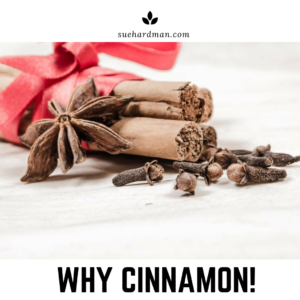



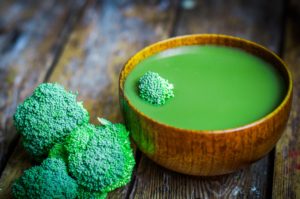

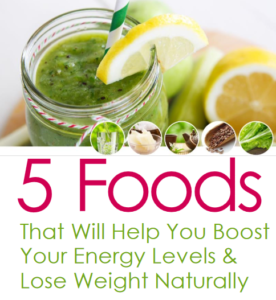

 These aromatic oils are also responsible for Chamomile’s actions as a digestive – relieving stagnation in the form of gas, gu
These aromatic oils are also responsible for Chamomile’s actions as a digestive – relieving stagnation in the form of gas, gu
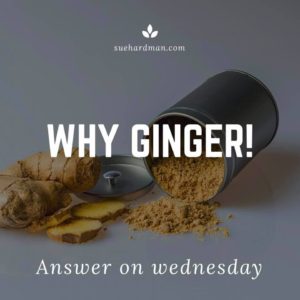 Ginger a wonder botanical medicine
Ginger a wonder botanical medicine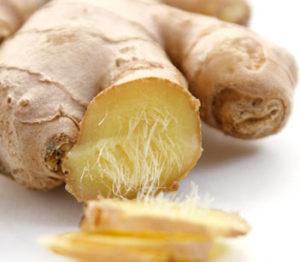
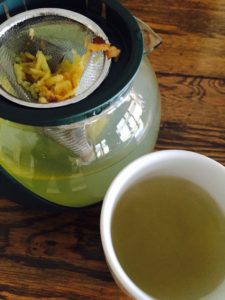


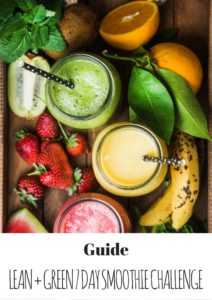

 Dr. Nikolai Lazarev defines an adaptogen ‘as an agent that allows the body to counter adverse physical, chemical, or biological stressors and allows the body to “adapt” to the stressful circumstances’ and use oxygen much more efficiently.
Dr. Nikolai Lazarev defines an adaptogen ‘as an agent that allows the body to counter adverse physical, chemical, or biological stressors and allows the body to “adapt” to the stressful circumstances’ and use oxygen much more efficiently. Of course if adaptogens can benefit a well trained athlete, thenimagine how that can help you with your anxiety, ongoing exhaustion and stressful lives.
Of course if adaptogens can benefit a well trained athlete, thenimagine how that can help you with your anxiety, ongoing exhaustion and stressful lives.